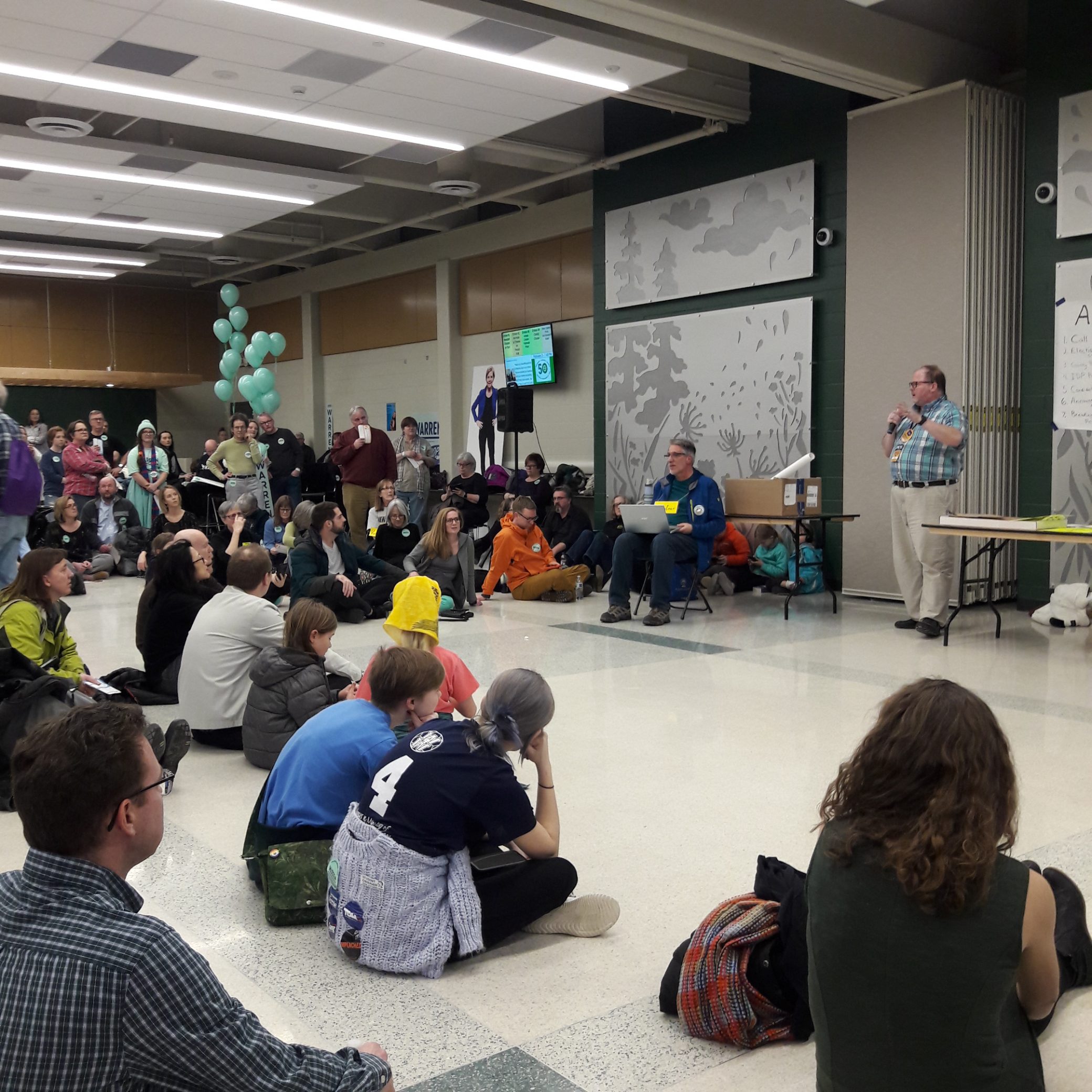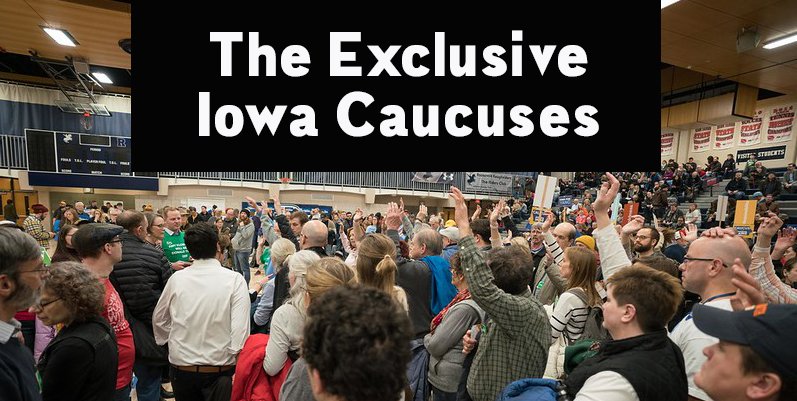I attended my first Iowa Caucus this year. Though I went through mixed emotions before, during, and after the event, one quality stood out to me at the end of the day: its exclusivity.
Iowa’s caucuses take place on a Monday, from 7 p.m. until whenever it finishes. This required presence — at a prescribed location, date, and time — can create all sorts of logistical problems. Consider:
Do you work in the evening and cannot get out of work? Do you have children or dependents that require you to care for them at home? Do you have a health-related issue that makes it difficult to leave your house?
Are you without a car? Do you need to use public transportation to travel? Did your period start, giving you severe menstrual pain that painkillers won’t relieve? Are you exhausted from overwork, taking care of children, or dealing with family issues? Do you live with a domestic abuser or a trafficker who does not let you attend public events?
If you answered “yes” to even one of these questions, you’re already disadvantaged at the chance to spend three hours on a Monday night caucusing. The challenges stack up as you arrive at the caucus site:
Do you struggle in a crowded and noisy space? Do you need to use the bathroom more frequently than every three hours? Are you incapable of standing for two hours straight? Is it a challenge to sit on the floor, or to get up from the floor on your own?
Do you have trouble hearing announcements through loudspeakers? Do you have limited vision that prevents you from seeing the candidates’ signs at the caucus? Do you use a language other than English, and does your limited English proficiency make it hard to understand the rules and procedures? Do you have social anxiety when talking with strangers or surrounded by large groups? Do you look notably “different” from your neighbors?
Have you experienced harassment or indifference from the people in your community? Do you live in an area where voters repeatedly elect politicians who oppress the people of your identity through government policies and public speeches? Do local newspapers and other media sources in your area express hostility toward the people of your identity? Do they erase your identity by neglecting people who share it in their news coverage?

Again, a rare few of us can answer “no” to all of these questions. Those few are privileged. The rest of us are forced to overcome some level of inaccessibility to participate in the caucus system. Our society already forces people without privilege to spend extra time, money, and energy just to make living. We shouldn’t have to overcome even more obstacles to have our vote counted. I came up with my list of questions above from a position of privilege. A person coming from less privilege would likely know of many more obstacles people face to fully participate in a caucus.
We cannot call this caucus system “democratic.” We cannot justify excluding the people most vulnerable in our society and most affected by our elected officials’ policies and governance.
Nationwide, our political system already excludes so many. We have 13.2 million permanent residents who do not have voting rights, 10.6 million undocumented immigrants, 6.1 million people with felony convictions, and 2.1 million people confined in local jails or prisons. We have normalized the exclusion of these populations, even though they are affected by our government more profoundly than those of us with voting rights.
A caucus system that is only available to people with enough privilege is not worth having. The Democratic Party is being hypocritical when it claims to “fight against inequality,” “protect voting rights,” and “restore democracy” but does not challenge a caucus system that clearly obstructs those goals.
It’s past time we ask ourselves: who is Iowa’s caucus system really for?






